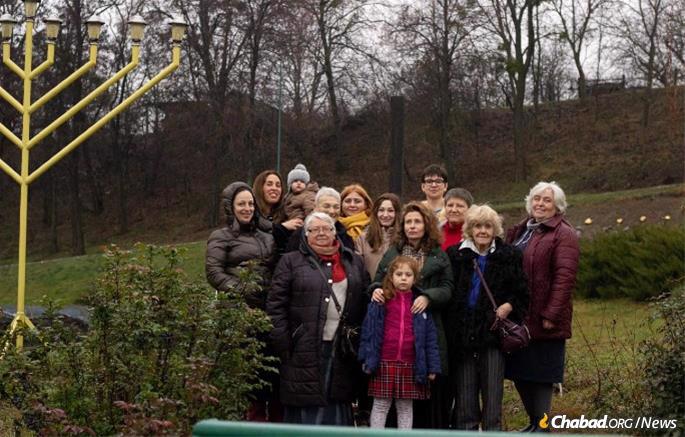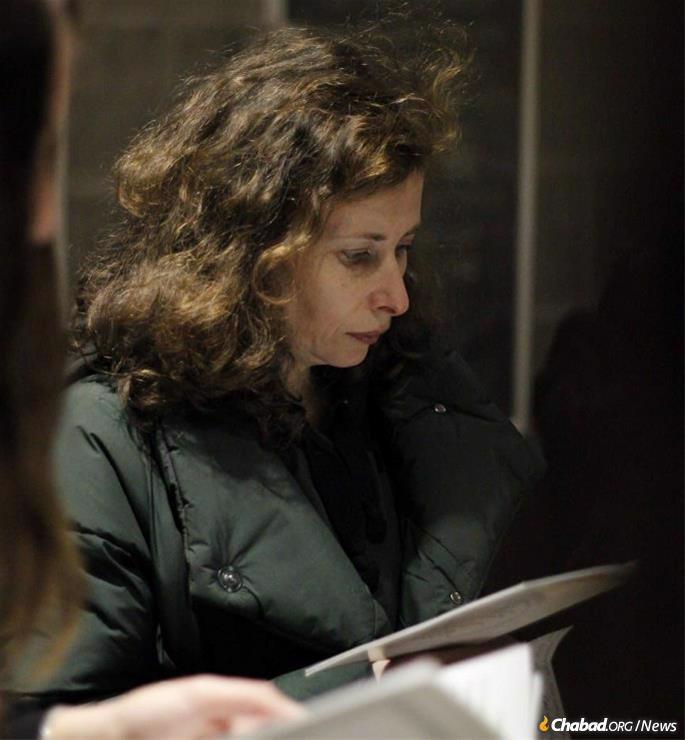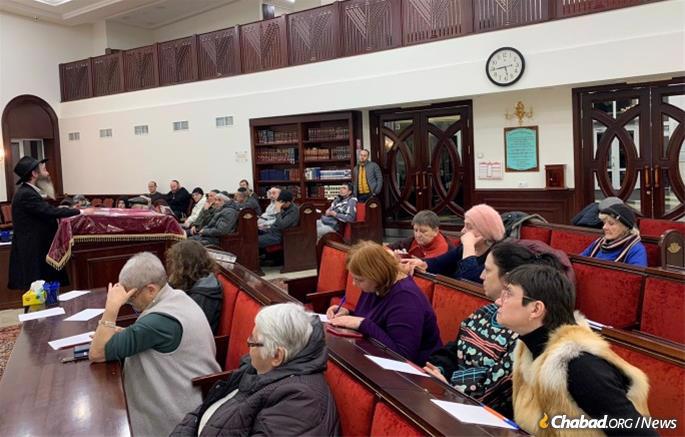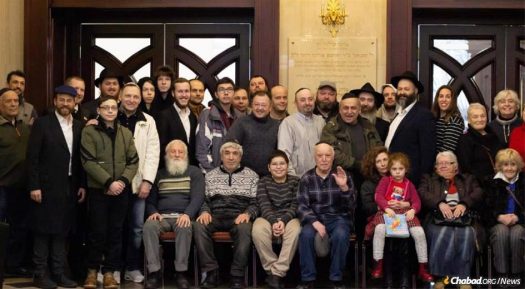
Ukraine Jews Travel to Resting Place of Chabad Founder
by Menachem Posner – chabad.org
Like everyone in Ukraine, Tanya Osipenko’s life has been turned upside down since war broke out earlier this year. Reliable electricity, running water, Internet service and heat have all become things of the past.
Yet she says that, for her, the hardest thing has been living far away from her two daughters, who both fled to Israel with their families.
“The Jewish community has taken the place of my family,” says Osipenko, who stayed in Ukraine to remain with her husband, who is unable to leave. “Today, the synagogue is my home, and the members of the community who are still here are like my family.”
This past Shabbat, Osipenko was among 45 members of the Jewish community of Kiev’s “Left Bank” to enjoy an uplifting and cathartic Shabbat in Haditch at the resting place of Rabbi Schneur Zalman of Liadi, the first Chabad-Lubavitch Rebbe, whose liberation in 1798 from a Czarist prison on the 19th day of the month of Kislev is being celebrated this week.
For 48 hours, the participants escaped the realities of war, death, and mayhem and focused on spirituality, camaraderie, Torah study and prayer, in large part thanks to the efforts of Rabbi Shneor Zalman Deutsch, who directs the Chabad House and retreat center in Haditch.
According to Devorah Levenharts, who co-directs the community together with her husband, Rabbi Mordechai Levenharts, the trip was the first time in months that many enjoyed a warm shower, a heated bedroom and electricity for any length of time.
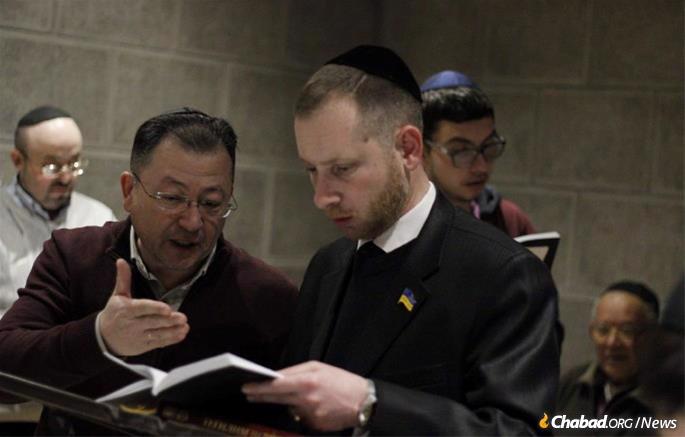
Still, Osipenko says that the spiritual experience of visiting the gravesite for the first time was most memorable for her. “I came depleted with no more energy to continue,” she says. “After spending time in such a spiritual place with my friends, I am uplifted and empowered.”
In other years, a Shabbat like this one would have attracted Jews from all over the country. But this year, says Levenharts, their group of 45 Kievans was the only one. “There is no other city in Ukraine that could come. Either there are no people, or they are afraid to leave home. Also, the curfew makes travel very difficult for people coming from further away.”
She reports that many of the participants came back with practical resolutions as well. Two men, aged 60 and 19 respectively, have committed to undergo circumcision, and others resolved to lay tefillin daily, increase in Shabbat observance and make other long-lasting changes in their lives.
